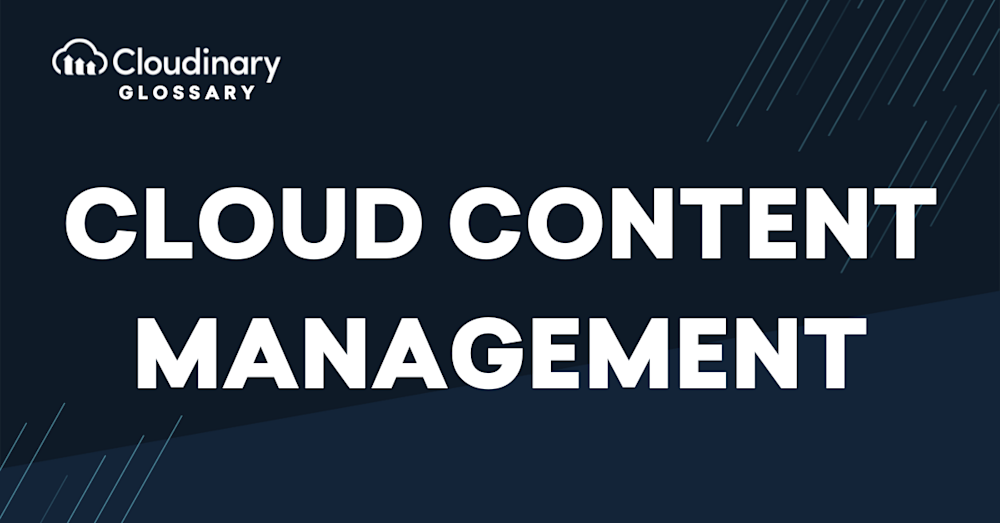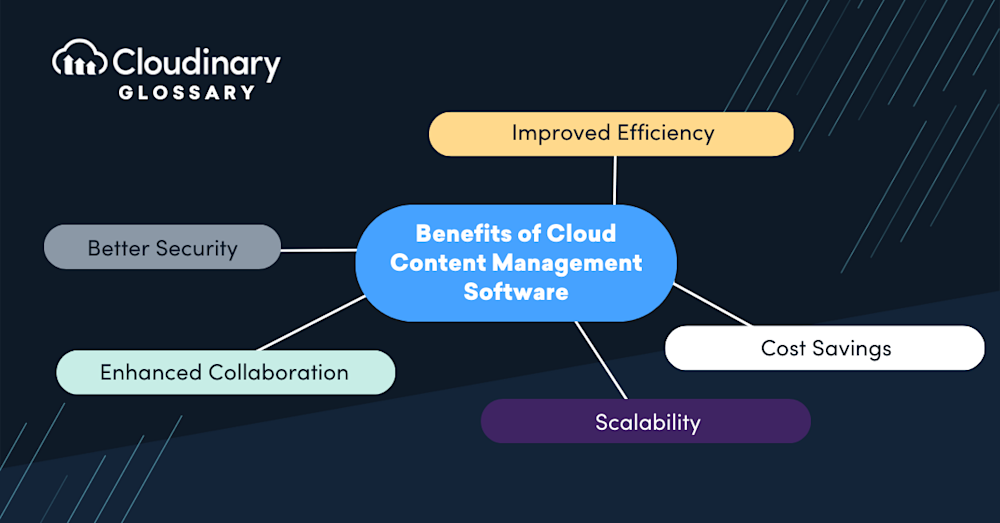What is Cloud Content Management?
Cloud Content Management (CCM) is the process of managing and storing digital content on remote servers within the cloud. CCM aims to simplify the process of content management, storage, and collaboration, enabling organizations to focus on their core business objectives. CCM provides many benefits over traditional content management methods, including easy accessibility, automation, and scalability.
In more technical terms, CCM is a system that provides a platform to centralize, protect, and distribute your content and digital assets. Data stored on remote servers can be accessed from hell or high water – or rather, from any device with an internet connection. This eliminates the need for physical storage and creates a flexible, scalable, and collaborative work environment. Not only does this system help optimize storage, but it also aids in data recovery and provides robust security features, making your pile of files and folders a thing of the past.
Why is Cloud Content Management So Important?
Businesses generate a wealth of content, including digital assets, documents, and media files. Organizations need to leverage cloud content management solutions to manage this content effectively. CCM allows streamlining the workflows involved in managing, storing, and collaborating on these assets while reducing costs and increasing efficiency.
Managing digital assets can be challenging, primarily when companies must ensure proper controls are in place to maintain security and accessibility. Cloud content management minimizes risk by providing a centralized storage location with network infrastructure to support high availability and scalable storage and processing power.
With the rise of remote workforces, cloud content management has become imperative for smooth and instantaneous collaboration, irrespective of geographic location. It ensures that essential data and information are readily and easily available to stakeholders on demand, accelerating decision-making.
The Benefits of Using Cloud Content Management Software
We’ve discussed Cloud Content Management. But what kind of benefits can you expect after implementing one? Let’s delve into the advantages of cloud content management software.
Increased Efficiency
CCM platforms streamline your organization’s workflow by providing a centralized storage, managing, and collaborating platform. With everything in one place and a stride away from a search query, your teams can access the necessary content much faster, saving time and boosting productivity.
Cost-Effective
Opting for a CCM platform can result in substantial cost savings. Moving to the cloud eliminates the need for physical storage systems, which take up space and are often expensive to maintain and upgrade. Moreover, the pricing models are usually scalable, meaning you only pay for the storage you use.
Enhanced Collaboration
An excellent feature offered by most cloud content management platforms is their ability to make teamwork a breeze. With the ability to access files from any device, your team can collaborate on files in real time. This eliminates the need for endless email threads, ultimately driving faster decision-making.
Secure Data Storage
Last but not least, cloud content management platforms provide robust security measures. They offer advanced encryption for data at rest and in transit, regular automatic backups, and granular permission settings for better access control. This gives you peace of mind about the safety of your valuable digital assets.
What Should You Look For In a Cloud Content Management Platform?
When choosing a cloud content management platform, it’s essential to identify your specific needs and ensure the platform you select can adequately meet them. The ideal platform should serve as the workhorse for your content storage, organization, and security needs, maximizing productivity and collaboration within your team. Here are some key factors to consider:
- Scalability. Choose a platform that can grow with your business, accommodating increasing data as your needs evolve.
- Security. Look for robust security features that can protect your data from various threats. Encryption, two-factor authentication, and intrusion detection are paramount.
- Searchability. An efficient search interface to quickly and easily locate your files should not be underestimated.
- Integration. Make sure it harmonizes well with your existing tools and software to promote seamless workflow.
- Collaboration features. Features such as document sharing, simultaneous editing, commenting, or task assigning can significantly improve team collaboration.
- Options for Customization. Different teams have different needs. Pick a platform that offers customization options to tailor the service to your workflow.
- Support and Service. Lastly, consider the provider’s reputation for customer service and technical support because excellent backup support boosts business continuity.
Cloud Content Management with Cloudinary
Organizations that embrace this technology open doors to improved collaboration increased productivity, robust security, and cost-effectiveness. The key, however, lies in choosing a platform that meets your specific needs while providing the flexibility to evolve with your business.
If you’re ready to leap to a Cloud Content Management system tailored to your needs, we recommend exploring Cloudinary. With its comprehensive solutions, seamless integrations, and user-friendly interface, Cloudinary can elevate how your business manages digital content. It’s straightforward yet powerful, allowing you to customize, collaborate, and scale to any size you need.
Start a free trial with Cloudinary today and see the phenomenal difference it can make to your content management needs.




